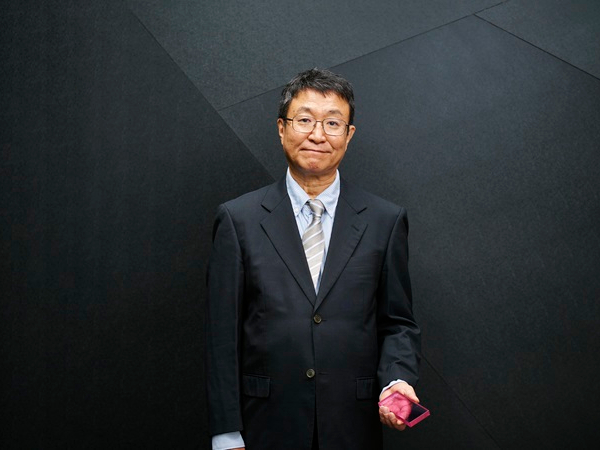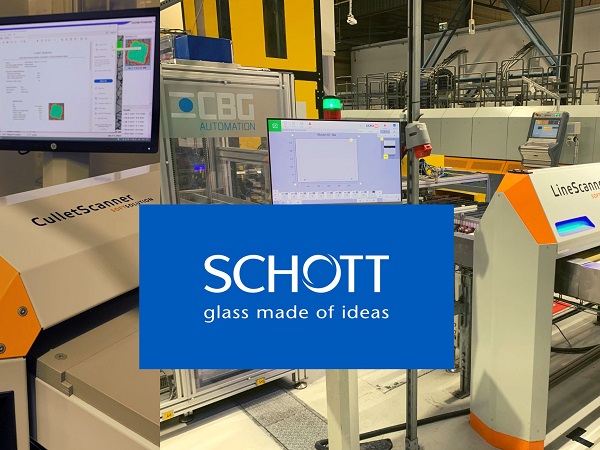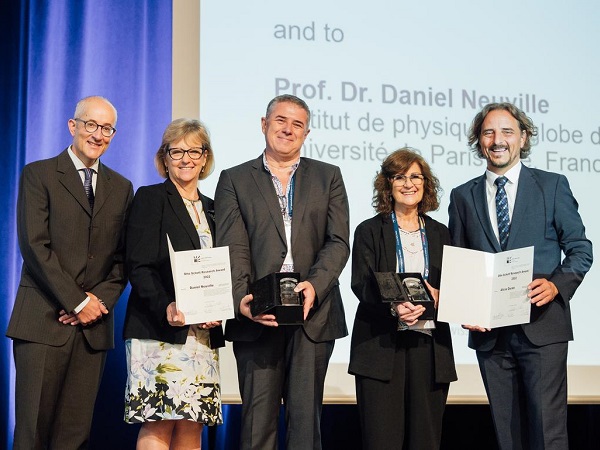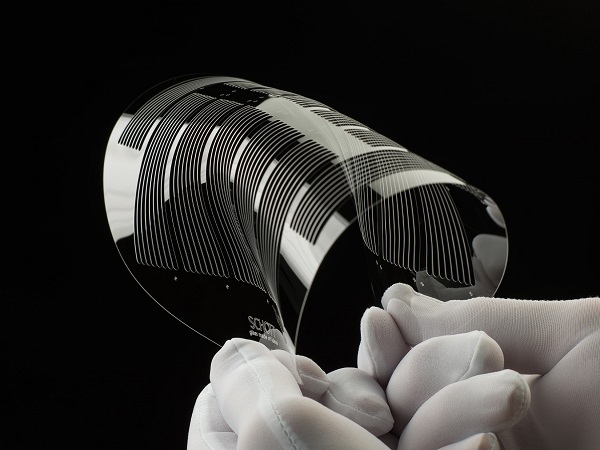Date: 6 June 2012
Adrian Wright from Reading University in England. The presentation of this award for the twelfth time took place on June 4, 2012, as part of a multi-day international conference on glass in Maastricht, the Netherlands.
The Board of Trustees emphasized two different aspects of the award in selecting this year’s winners, as Dr. Hans-Joachim Konz, Chairman of the Board of Trustees of the Ernst Abbe Fund and a member of the Board of Management of SCHOTT AG, noted at the award ceremony: “On the one hand, we are honoring the outstanding achievements of a glass researcher who still has a good share of his working life ahead of him. On the other hand, we are recognizing yet another individual for his life’s work.”
The Otto Schott Research Award is presented to recognize outstanding scientific achievements in fundamental research and technology development in the fields of special materials, components and systems for the areas of application optics and electronics, solar power, health and living. Otto Schott is considered to be the inventor of modern glass technology. Borosilicate glasses, one of his many inventions, have changed the world. Unlike any other invention, these products have influenced and in some cases even made developments possible in the first place in the area of optics, the large-scale chemical industry and people’s everyday lives all over the world. The presentation of the Otto Schott Research Award to this year's winner Prof. Adrian C. Wright was therefore almost a logical conclusion.
He was presented with this award for his lifelong outstanding scholarly work devoted to the experimental study of glass structure in general and his lifetime achievements in experimental study of the structure of borate glasses, melts, and crystals, in particular. “Ever since his revolutionary publication on runtime neutron scattering measurements performed on glasses back in 1974, he has constantly made valuable contributions to experimental investigation of the structure of glass,” Prof. Reinhard Conradt, a member of the Board of Trustees, cited in his laudation on why he was chosen for the award. He added that, in contrast to crystallography, the term morphography is closely linked to his name and that the glass community owes much of what is known today about the structure of glass and borate glasses in particular to Prof. Wright.
The second award winner, Professor Joachim Deubener, was honored for his research work in the areas of transport processes and gas solubility in glasses, crystallization kinetics and their application to industrial rheology, sol-gel processing and formulation of enamels. “His contribution in the area of the solubility of gases in glasses and glass melts in particular stands out among his many excellent achievements,” the member of the Board of Trustees Prof. Reinhard Conradt noted in his laudation on the award winner. “His work in this area is quite comprehensive, including his master curves that link the results of his own detailed experimental work with substantiated information drawn from trade literature and illustrate the complex relationships between the type and solubility of gases in glass or the effective viscosities in multiphase systems.” This type of data correlation and presentation is considered a trademark of his work and underscores his outstanding skills as a researcher and university professor.
The Otto Schott Research Award is presented by the Ernst Abbe Fund on an alternating basis with the Carl Zeiss Research Award to recognize outstanding scientific achievements and encourage support for collaboration between science and industry. The Ernst Abbe Fund is managed by the Donors’ Association for the Promotion of Sciences. The previous winners of the Otto Schott Research Award include not only German physicians and chemists, but also researchers from the United States, Russia, Japan, China and other European countries. 
The Otto Schott Research Award 2012 went to the two researchers Prof. Joachim Deubener (2nd from left) from the Clausthal University of Technology in Germany and Prof. Adrian Wright (2nd from right) from Reading University in England. Dr. Hans-Joachim Konz (left), Chairman of the Board of Trustees of the Ernst Abbe Fund and a member of the Board of Management of SCHOTT AG, presented the award during a multi-day international conference on glass in Maastricht, the Netherlands. In the picture on the right, Prof. Reinhard Conradt, a member of the Board of Trustees, who gave the laudation. Photo: SCHOTT
------------
SCHOTT is an international technology group with more than 125 years of experience in the areas of specialty glasses and materials and advanced technologies. SCHOTT ranks number one in the world with many of its products. Its core markets are the household appliance, solar power, pharmaceuticals, electronics, optics, transportation and architecture industries. The company is strongly committed to contributing to its customers’ success and making SCHOTT an important part of people’s lives with high-quality products and intelligent solutions. SCHOTT is committed to managing its business in a sustainable manner and supporting its employees, society and the environment. The SCHOTT Group maintains close proximity to its customers with manufacturing and sales units in all major markets. Its workforce of around 17,000 employees generated worldwide sales of approximately 2.9 billion euros for the 2010/2011 fiscal year. SCHOTT AG, with its headquarters in Mainz (Germany) is owned by the Carl Zeiss Foundation.







Add new comment